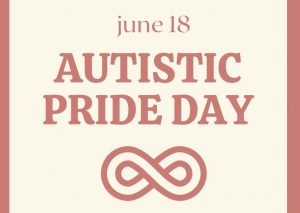Autism is a neurodevelopmental disorder characterized by difficulties in social interaction, behaviour, and communication.
Unusual patterns of activities and behaviours such as difficulty switching from one activity to another, attention to details, and strange reactions to sensations may be observed, although they are rarely recognised until much later.
According to the World Health Organization, “People with autism often have co-occurring conditions, including epilepsy, depression, anxiety and attention deficit hyperactivity disorder as well as challenging behaviours such as difficulty sleeping and self-injury. The level of intellectual functioning among autistic people varies widely, extending from profound impairment to superior levels.”
Dr Milan Balakrishnan, the Consultant Psychiatrist at Mumbai’s Masina Hospital, said “We are seeing more and more cases being diagnosed earlier with better awareness, autism is associated with episodes of aggression and emotional outbursts. They may have difficulty focusing as well as awkward behaviours lead to them being bullied and marginalized in school. No friends mean more difficulty in improving social interaction.”
Also read: IIT-Bombay research suggests modest COVID-19 may harm male fertility
Symptoms of Autism:
“The core symptoms of autism are: social communication problems and restricted, repetitive behaviours. Symptoms of autism may: begin in early childhood (though they may go unrecognised) persist and interfere with daily living. Many people with autism have sensory issues. These typically involve over-or under-sensitivities to sounds, lights, touch, tastes, smells, pain, and other stimuli. Autism is also associated with high rates of certain physical and mental health conditions.” Dr. Milan Balakrishnan explained.
Individuals may also show repetitive behaviours such as:
Repetitive body movements
Preoccupied motion with particular objects
Starring at light or spinning objects
Conventional behaviour
Lesser extreme interest in particular topics
Need for fixed routine/denying to change
Challenges of Autism:
Individuals with Autism find difficulties in verbal and non-verbal communication, for instance, they might not understand and properly use the spoken language, gestures, look for emotional comfort from others, feel overwhelmed, eye contact, tone, facial expressions, unable to recognise one’s own emotions, taking turns in conversations are some of the challenges faced by people with Autism.
Myths:
Dr Gunjan Bharadwaj, Founder/CEO Innoplexus (NEURIA App), along with Dr Milan Balakrishnan have broken some of the myths attached to autism
Also read: Strokes and heart attacks can now be predicted from childhood risk factors
- Autism can be cured: Autism is a neurological developmental disorder that lasts a lifetime, not a disease that can be cured. Early access to evidence-based psychosocial therapies can help people with autism communicate and interact socially more effectively. It can be controlled not cured.
- Autism is caused by vaccines: According to the Centers for Disease Control and Prevention, a recent study of 600,000 children over the age of 11 found no link between vaccines and the development of autism (CDC). There is also no link between the chemicals in vaccines and ASD.
Also read: Trouble sleeping? Yoga to the rescue again
- Autistic people have no emotions and are violent: People with Autism have feelings, but they have a hard time expressing them. Autistic persons also have a hard time understanding other people’s emotions, body language, and facial expressions.
- Autism only affects the brain: Despite the fact that autism is a neurological illness, it can affect other parts of the body apart from the brain. Children with autism have a higher risk of having epilepsy, a weakened immune system, and gastrointestinal issues than the general population. Some of them may also battle with sleep difficulties and dietary problems.
- Autism is caused due to poor parenting: When autism was first recognised as an uncommon disorder 30 years ago, parents, especially mothers, were criticized for being emotionally distant. They were called “refrigerator mothers”. Since then, it has been widely accepted that autism is a neurodevelopmental condition that presents itself in the brain from birth.
Treatment:
According to Dr Milan Balakrishnan, “The treatments revolve around occupational therapy like sensory Integration which helps with sensory problems. Applied behavioural analysis helps in modifying problematic behaviours. Social Skills training to improve interaction. Physical exercises and activities to improve fine motor control. In case of difficulty in managing aggressive outbursts, medication may be used. If Attention Deficit Hyperactivity Disorder is present with autism, it may need medical treatment.”





